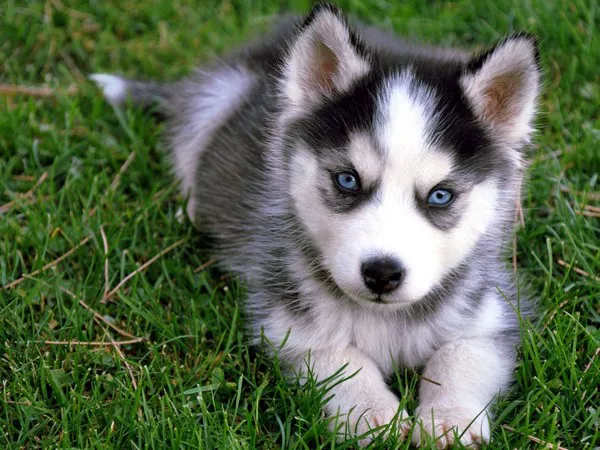Huskies are a beautiful and active breed of dog that are known for their thick fur, piercing blue eyes, and wolf-like appearance. They are also known for their high energy levels and need for a lot of exercise. As a result, it is important to feed your husky a diet that is high in protein and fat to help them maintain their energy levels and stay healthy.
What are the Essential Nutrients for Huskies?
The essential nutrients for huskies include:
Protein: Protein is essential for building and maintaining muscle mass, as well as for providing energy. Huskies need a diet that is high in protein, with a minimum of 18% protein.
Fat: Fat is also an important source of energy for huskies, and it also helps to keep their skin and coat healthy. Huskies need a diet that contains a moderate amount of fat, with a maximum of 22% fat.
Carbohydrates: Carbohydrates provide energy for huskies, but they should not be the main source of energy in their diet. Huskies need a diet that is low in carbohydrates, with a maximum of 50% carbohydrates.
Vitamins and minerals: Huskies need a diet that is rich in vitamins and minerals to stay healthy. These vitamins and minerals include:
Vitamin A: Vitamin A is essential for vision, reproduction, and immune function.
Vitamin B12: Vitamin B12 is essential for energy metabolism and red blood cell production.
Calcium: Calcium is essential for bone health.
Phosphorus: Phosphorus is essential for energy metabolism and bone health.
Zinc: Zinc is essential for immune function and wound healing.
What Foods Should Huskies Eat?
There are many different foods that huskies can eat, but some of the best foods for huskies include:
Meat: Huskies are carnivores, so they need a diet that is high in meat. Good sources of meat for huskies include chicken, beef, lamb, turkey, and fish.
Organ meats: Organ meats are a good source of vitamins and minerals, and they are also very digestible for huskies. Good sources of organ meats for huskies include liver, kidney, and heart.
Fish: Fish is a good source of protein and omega-3 fatty acids, which are essential for huskies’ skin and coat health. Good sources of fish for huskies include salmon, tuna, and mackerel.
Whole grains: Whole grains are a good source of carbohydrates for huskies, but they should be limited to a maximum of 50% of their diet. Good sources of whole grains for huskies include brown rice, oatmeal, and barley.
Vegetables: Vegetables are a good source of vitamins and minerals for huskies, and they can also help to keep their stool firm. Good sources of vegetables for huskies include carrots, broccoli, and green beans.
Fruits: Fruits are a good source of vitamins and minerals for huskies, but they should be limited to a maximum of 10% of their diet. Good sources of fruits for huskies include apples, bananas, and berries.
What Foods Should Huskies Avoid?
There are some foods that huskies should avoid, including:
Grapes and raisins: Grapes and raisins can be toxic to dogs, and they can cause kidney failure.
Chocolate: Chocolate contains theobromine, which is toxic to dogs.
Macadamia nuts: Macadamia nuts can cause vomiting, diarrhea, and tremors in dogs.
Onions and garlic: Onions and garlic can cause anemia in dogs.
Yeast dough: Yeast dough can rise in a dog’s stomach and cause bloat, which can be fatal.
How Much Should Huskies Eat?
The amount of food that a husky needs to eat will vary depending on their age, weight, and activity level. However, as a general rule of thumb, huskies should eat about 2-3% of their body weight per day. For example, a 50-pound husky would need to eat about 1-1.5 pounds of food per day.
How Often Should Huskies Eat?
Huskies can be fed twice or three times a day. Puppies should be fed three times a day, while adult huskies can be fed twice a day.
Conclusion
Huskies are a beautiful and active breed of dog that require a high-quality diet to stay healthy. By feeding your husky a diet that is high in protein, fat, and essential vitamins and minerals, you can help them to maintain their energy levels, stay healthy, and live a long and happy life.


